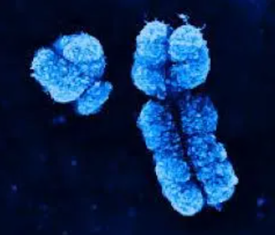another scrote L Anonymous 242449
another scrote L:
In his textbook Conception in the Human Female (1980) – more than 1,000 pages in length – Sir Robert Edwards, a recipient of the 2010 Nobel prize for the development of IVF, mentioned cervical crypts in a single sentence. Since then, many other authors have mentioned sperm storage in those cervical crypts equally briefly. Yet storage of sperm, with gradual release, has major implications for human reproduction. Crucially, the widespread notion of a restricted ‘fertile window’ in the menstrual cycle depends on the long-accepted wisdom that sperm survive only two days after insemination. Sperm survival perhaps for 10 days or more radically erodes the basis for so-called ‘natural’ methods of birth control through avoidance of conception. Sperm storage is also directly relevant to attempts to treat infertility.
Another dangerous misconception is the myth that men retain full fertility into old age, starkly contrasting with the abrupt cessation of fertility seen in women at menopause. Abundant evidence shows that, in men, sperm numbers and quality decline with increasing age. Moreover, it has recently emerged that mutations accumulate about four times faster in sperm than in eggs, so semen from old men is actually risk-laden.
Much has been written about the fact that in industrialised societies age at first birth is increasing in women, accompanied by slowly mounting reproductive problems. A proposed solution is the highly invasive and very expensive procedure of ‘fertility preservation’ in which eggs are harvested from young women for use later in life. However, increasing reproductive problems with ageing men, notably more rapid accumulation of sperm mutations, have passed largely unmentioned. One very effective and far less expensive and invasive way of reducing reproductive problems for ageing couples would surely be to store semen samples from young men to be used later in life. This is just one of the benefits to be gained from less sexism and more reliable knowledge in the realm of human reproduction.
Anonymous 242562
image_2023-07-10_1…

>>242449Thank you for sharing.
>Moreover, it has recently emerged that mutations accumulate about four times faster in sperm than in eggs, so semen from old men is actually risk-laden.Fueling the fire, there's a good wordpress blog that goes into more depth about the mutations of male genome. Afaik it has some fallacious arguments, but at its core is supported by the science of genetics (quote from Bryan Sykes, a clinical geneticist):
When mutations hit vital genes, they cause genetic diseases, and these damaging changes are ten to fifteen times more likely to happen in (men, who then introduce them into the species). But not all mutations are quite so drastic in their effects. They can wound a gene without killing it outright. The wounded Y-chromosome, just a little bit less healthy than before, probably will get through. Then, a few generations later, another mutation will sting again. Not fatally, but enough to weaken it a little bit more. This is death by a thousand cuts. Unable to make long-term repairs themselves through sexual recombination, and isolated from external help, the wounded Y-chromosomes will stagger on through succeeding generations, gradually becoming weaker and weaker.This doesn't just affect individual men throughout their lifespan, this is a generational issue. Young men are also prone to mutating due to Y chromosome's inability to recombine as other chromosomes do, but old men are literally walking, talking sacks of undesirable genetics.
Feel free to snoop around further nonas, just don't take everything at face value, the information about Y chromosome is further down after scrolling a bit:
https://trustyourperceptions.wordpress.com Anonymous 243027
>>242449>Another dangerous misconception is the myth that men retain full fertility into old age, starkly contrasting with the abrupt cessation of fertility seen in women at menopause. Abundant evidence shows that, in men, sperm numbers and quality decline with increasing age. Yeah I never got why nobody acknowledged the extent to which sperm degrades even as men hit their mid 30s. Autism is a lot likelier for people with older dads. This is how you get a chris-chan kid.